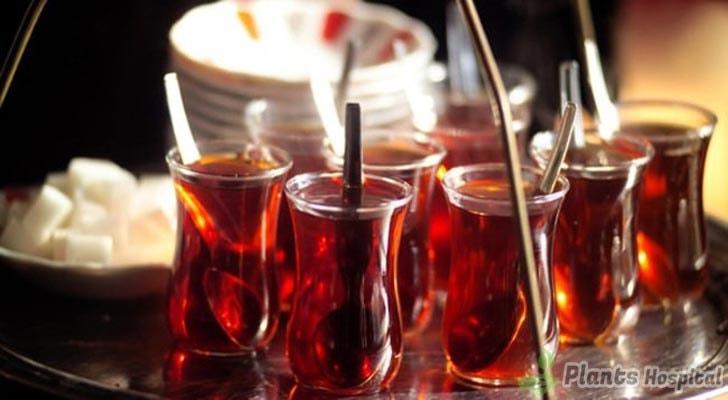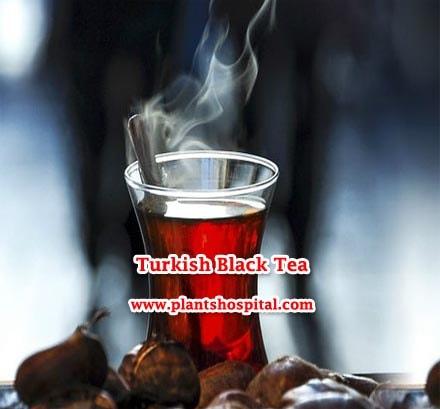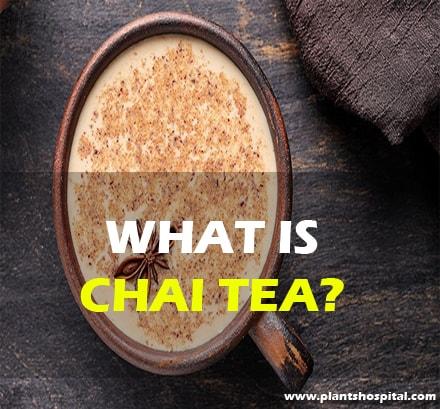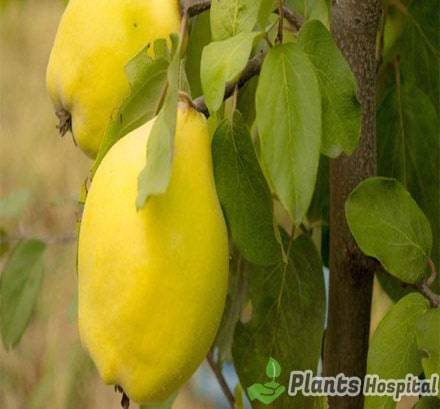Table of Contents
What is a Turkish Black Tea?
Turkish Black Tea is an ever growing culture. Turkey is situated at the west ends of Asia and east ends of Europe and is the only country in Europe tea grows. Turkish people start to drink coffee in the 15th century and tea-drinking habits started in the 17h century.
When we look back her history of Turkish Tea drinking, the word “Cay“ took an important role, which took a very long voyage from China, Mongolia, Central Asian countries to Russia, Georgia, Turkey through the oldest road “Silk Road” and their drinking is quite similar in those countries.
Turkish Tea plantations started in 1838, which they brought Turkish black tea, seeds from Japan but due to technological, geographical conditions, they could not be successful.
During this period one Japanese Tea master visited Turkey and served Japanese Tea to Sultan and this gave influence to coffee drinking people to change to tea drinking.
Today, Turkish became a heavy tea drinker and Turkish tea is one main export item to the Middle East and Russian countries. The word “Cay” cannot neglect in Turkish daily life.

In 1878 Turkish tea consumption began to spread through Istanbul as teahouses opened in Sultanahmet. Tea became a cheaper alternative to coffee; The nation’s founder, Mustafa Kemal Ataturk Encouraged tea as an alternative to Turkish coffee, which had become too expensive, four glasses of Turkish tea could be purchased for the price of one cup of Turkish coffee.
Turkey is one of the most significant and unique countries in the world from the tea plant Camellia sinensis. There are no agricultural pesticides in Turkish tea, as tea growers do not use pesticides. Turkish tea is natural and healthy.
There are no additives or chemicals in Turkish tea. No additives or chemicals are used in either tea gardens or the production process.
Turkish tea does not contain much caffeine. It is based on research carried out is known as the healthiest tea in the world.
In Turkey, coffee was the main beverage till 1700, and in 1838 tea seed was imported from Japan and planted but due to climatically and technical reasons that were not successful.
In 1917 Turkish tea trees are brought from Georgia and in 1924 they have succeeded plantation, in the year 1938, finally, 138 kilograms often were produced.
1947 first commercial tea factory was installed and Turkey prohibited the importation of coffee due to critical economic conditions, this switched their beverage from coffee to tea.
Turkish black tea is a traditional and trendy drink in Turkey. It is widely enjoyed as a hot beverage and as an ice cream flavor, a syrup for cakes, or a filling for donuts!
Despite its name, Turkish tea is a black tea beverage. It’s served as an ice-cold cup during the summer to keep you cool and refreshed. The Turks began drinking it about two thousand years ago!
Turkey is rated as the leading tea consumer in the world. Turkish tea culture has also spread to Northern Cyprus and certain nations in the Balkan Peninsula.
In 2004, 205,500 tonnes were produced in Turkey( 6.4% of the planet’s total tea yield), making it one of the world’s largest tea markets. Turkey consumes over 120,000 tons.
Turkey has the world’s highest per capita tea consumption, with 2.5 kg per person. The United Kingdom tea lovers consume 2.1 kg per person).
More recent statistics suggest that 3.5 kg per capita, or almost four cups each day, is consumed.
Tea is a popular beverage in Turkey, and the country’s import taxes on it, which are presently at 145%, help maintain its local tea market.
Turkish Tea Culture
The history of tea in Turkey is quite extensive. There are references to tea in the books of the Ottoman Turks, who were known for experimenting with new plants before Europeans came into contact with them.
The first European traveler to mention tea was Dutchman Jan Huygen van Linschoten, who visited Istanbul before heading home from a journey that had taken him across much of Eurasia. He wrote about drinking.
“cha” during his stay in the city after 1595.
Tea started to spread beyond the sanjaqs of Egypt, which led Egypt to import it to cultivate new crops themselves.
Along with this distribution of knowledge on cultivating it, new varieties began to grow and become what is known today as Turkish tea.
It is said that, during the 17th century, Sultan Mehmed IV (1648–1687) received regular shipments of Chinese black tea through Baghdad and Aleppo on his private seal, which he shared with his mother.
The sultan’s interest in this beverage and its popularity in the palace made it fashionable for Istanbul’s elite to drink tea.
People began to consume tea despite their religious restrictions and even sat on the floor while drinking tea.
It is said that coffee houses were established by Turkic people in Constantinople (Istanbul) around 1555, and these shops became popular gathering spots for sipping tea.
After that, coffee was served in small cups, while drinking tea was limited to “unofficial” places like teahouses frequented by the lower classes. But it is believed that this practice did not last long.
As time went on, Turkish people started growing wild varieties of black tea and created a cultivated variety from it, which they preserved and continue to use today.
It is told that the first person whose job was to produce tea for the palace was a certain Mehmed Again 1656.
In 1700, Ibrahim Muteferrika opened the first Turkish printing house. The publications of this press included many books on agriculture, including one on tea cultivation.
In 1758, Sultan Mustafa III (1757–1774) prohibited the use of coffee in the palace due to concerns that it was ruining “people’s health.”
His successor Mahmud I (1730–1754), who took over for Mustafa during his son’s minority, ordered three chests of tea from China every year.
Tea became increasingly popular in the palace during this period. The tea produced was of very high quality, and it is said that when Mahmud went on the Hajj to Mecca, he brought back two kinds of tea with him.
One served in the palace and another for general consumption in Istanbul’s coffeehouses.
When you visit Turkey, you recognize Asian customs, such as ladies sitting in Tea House (Kirrathhane or Cayhane), this is a place where the only man sitting, so ladies will take a seat at cake house.
Whenever you visit Turkey, in any place you are asked: “Would you like to have tea or coffee?” In the government office” special tea brewer serves Turkish tea, so difficult to reject the offer and obliged to drink at least 10-20 cups of tea in a day.
In Grand Bazaar in Istanbul where nearly 4000 shops engaged in business and during negotiation tea takes an important role in business negotiation. As I mentioned ladies are not allowed to sit in Tearoom, so they enjoy their tea in their own house, In the tea party, they will discuss choosing Bridegroom By Following Conditions
Whether she can brew good tea, good cooker, cleanness of room, and conversational language. In the Black Sea coast, where tea is cultivated, all work depends on the housewife’s shoulders.
When you visit Turkey as a traveler or business talk, you are often offered Turkish tea besides that In Istanbul has good tea houses such as Pierre Lotti is the best place to drink nice tea with her wonderful scenery.
Turkish tea is ingrained into Turkish culture; It is a social experience and a sign of hospitality and is offered as a sign of friendship.
Turkey is more known for its coffee than tea. Yet, Turkish people drink more tea than coffee. Fifty-two percent of their nonalcoholic beverage consumption is tea.
Turkey tops the charts in per capita tea consumption (2.5 kg compared to the UK’s 2.1 kg in 2004). This high rate is due to the availability of places to consume tea, social practices and norms, and domestic production along the Black Sea coast.
Turkey is the second-largest tea market in the world (after India), with a total tea volume of about 180,000 tones in 2004.
Indeed, tea is served anytime – for breakfast, before and after meals, and everywhere – offices, hospitals, buses, trains, cafes, restaurants, and homes.
In the streets, one can see a caycı (tea-waiter) making his continuous tea delivery rounds, carrying tea-filled tulip-shaped glasses on saucers with tiny teaspoons and cubes of sugar on a silver platter that hangs from silver chains.
In airports, representations of such “Turkish tea” welcome international guests who may well be served teabag teas in mugs in the upscale establishments of the airport. In many workplaces, there is often a person whose official duty is to make hot tea available to employees at all times.
In many homes, caydanlık (double teapot) is continuously boiling, so that some steaming hot tea is ready all the time. Our informants noted that tea drinking is “a natural part of daily life,” “any time is a good time for tea, and you can get tea everywhere, in all places.

What Are The Health Benefits Of Turkish Black Tea?
Green and black tea are made from a shrub called Camellia Sinesis, but with different processing methods. In addition to the leaves being withered, rolled, and heated, black tea leaves are fermented before the final heating process.
A Better Heart
As identified by Arab L. et al. in their 2009 research paper called “Green and Turkish black tea” consumption and risk of stroke: a meta-analysis”, it is seen that regardless of people’s
country of origin, individuals who consume 3 or more cups of tea had a 21% lower risk of a stroke than people who consume less than 1 cup of green or Turkish black tea per day.
For years, research has suggested that tea drinking is associated with improved cardiovascular health. Research has associated tea drinking with a reduced risk for hypertension, stroke, and hardening of the arteries.
Other studies have shown that tea may help support healthy blood flow and circulation by improving blood vessel function and helping to control blood clotting. Recent clinical and population studies have reinforced evidence of tea’s heart health benefits.
Cancer Prevention
Though a lot more research is required to confidently suggest cancer prevention techniques, some research over the years suggests that antioxidants like polyphenol and catechins in tea may help prevent some types of cancer.
It has been suggested that women who drink Turkish black tea regularly have a lower chance of ovarian cancer than their counterparts.
More than 3,000 published studies exist that evaluate the role that tea and tea compounds, such as epigallocatechin gallate (EGCG), may play in various types of cancer.
The research suggests that tea may help reduce cancer risk in several different ways.
- Reducing free radical and DNA damage
- Inhibiting uncontrolled cell growth (cell proliferation) by promoting programmed cell death (apoptosis)
- Boosting the immune system to help fend off the development and promotion of cancer cells. A population-based study from Sweden found that women who drank two or more cups of green or black tea per day had a 46 percent reduced risk of ovarian cancer compared with no–tea drinkers.
- Researchers found that tea drinkers had approximately a 42 percent reduced risk of colon cancer compared with no–tea drinkers. Men who drank more than 1.5 cups of tea per day were found to have a 70 percent lower colon cancer risk.

Editor’s Pick:
Antioxidants Source
Turkish Tea contains polyphenols, which are also antioxidants that help block DNA damage associated with tobacco or other toxic chemicals.
These antioxidants are different from those obtained from fruits and vegetables and therefore as a regular part of our diet they can provide additional benefits towards a healthy lifestyle.
It can lower the risk of heart disease and stroke, plus it has anti-inflammatory properties.
Turkish black tea is caffeine-free, so you don’t have to worry about having trouble falling asleep after drinking it late at night.
Turkish black tea contains important antioxidants, and there are many studies that prove its effectiveness in preventing disease.
It’s also full of flavor with a great taste that is sure to satisfy your tea craving.
Lower Risk of Diabetes
Based on a research study conducted of elderly people living in the Mediterranean islands it was discovered that people that had been consuming Turkish tea on a long-term basis on a moderate level (i.e 1-2 cups a day) had a 70% lower chance of having or developing type 2 diabetes.
Better Immune System
Turkish Black tea contains alkylamine antigens that help boost our immune response. Also, it contains tannins that can fight viruses and hence keep us protected from influenza, stomach flu, and other commonly found viruses in our everyday lives.
Increased Energy
Unlike other drinks that have relatively higher caffeine content, the low amounts found in tea can help enhance blood flow to the brain without over-stimulating the heart. It also stimulates the metabolism and respiratory system, as well as the heart and the kidneys.
Stress Relief
We are aware and well experienced in the calming and relaxing benefits of black tea. Not only does it help slow you down after a long day, but studies also show that the amino acid L-theanine found in black tea can help you relax and concentrate better.
Turkish Black tea has also been shown to reduce levels of the stress hormone cortisol when consumed in moderate amounts regularly.
Happiness Factor
If a perfect cup of tea makes you smile and lets your heart indulge a little, then what could be the harm?
Disadvantages
Drinking black tea may also inhibit or reduce iron absorption in your intestines, which is especially serious for people with anemia. Iron is needed to form hemoglobin, which carries oxygen in your blood.
The Linus Pauling Institute reports that drinking one cup of black tea with a meal can decrease your body’s absorption of iron by up to 70 percent.
Turkish tea may also have estrogen-like effects on your body, which has negative implications for hormone-dependent tumors of the breasts or prostate gland.
The acidity and astringency of black tea, due mainly to the tannins, may upset your stomach and lead to diarrhea.
Furthermore, oxalates in Turkish tea can accumulate within the kidneys and contribute to the formation of kidney stones if you drink too much regularly. In a less serious vein, Turkish black tea consumption discolors teeth and may make you self-conscious about smiling.
How To Make Turkish Black Tea?
The following recipe is how my girlfriend’s mother, who is a real Turkish momma, has been making tea for decades. If you are looking for an original recipe, this is it.
- Fill the bottom part of the teapot with water.
- Put two big tablespoons of tea in the top part, add just enough water to make the tea wet.
- Stack the two parts into one another, put the teapot on the stove and bring it to a boil.
- When the water is boiling, transfer it to the upper kettle until filled. Stack the two parts back together and put them back on the stove.
- The tea is ready when it is dark brown, fragrant, and the tea leaves have moved to the bottom of the kettle.
Fill into glasses, add more water from the lower part if necessary, sweeten to taste and enjoy!
Share your thoughts in the comment section Below.









Very efficiently written post. It will be valuable to anyone who usess it, as well as myself. Keep doing what you are doing i will definitely read more posts.